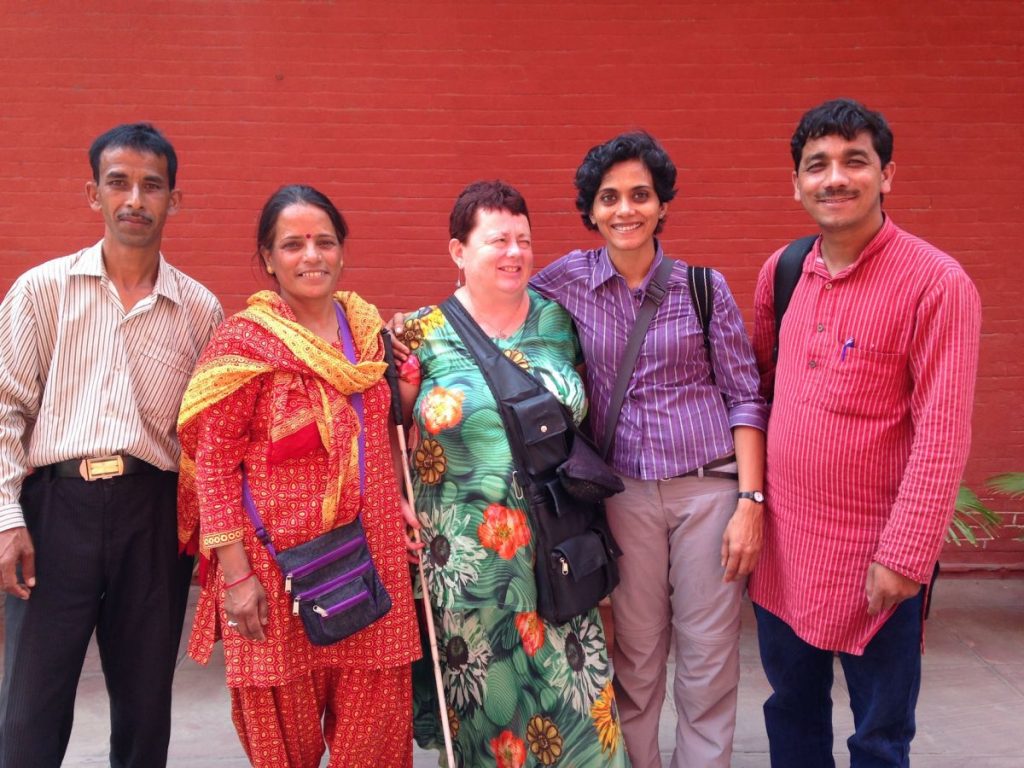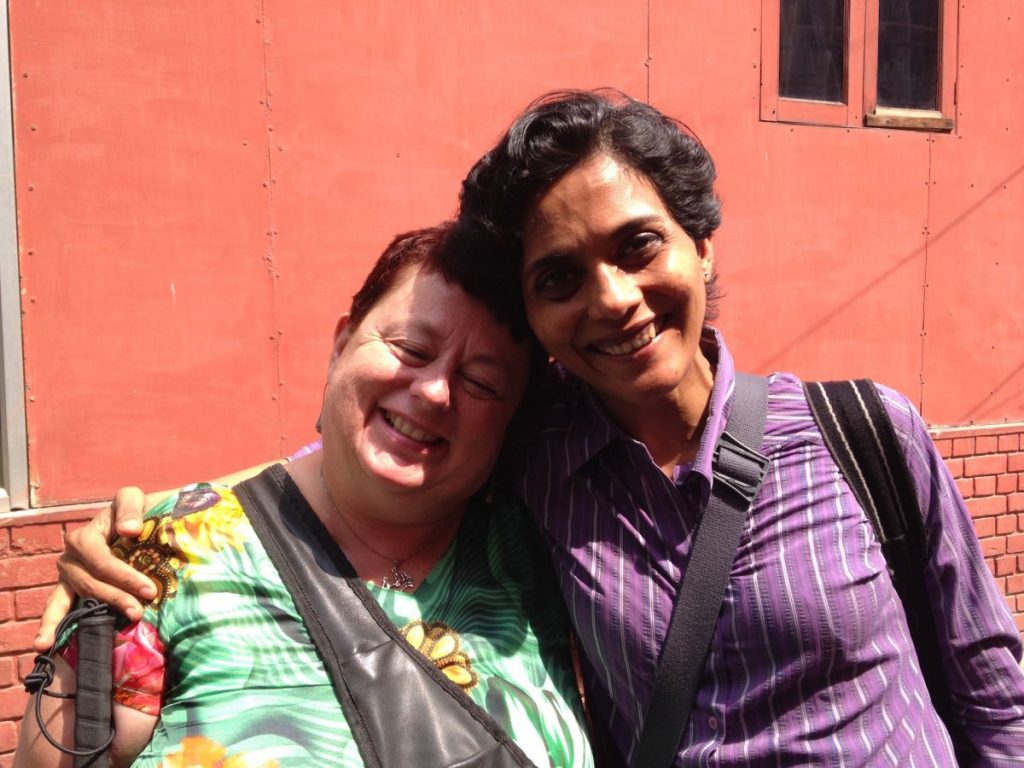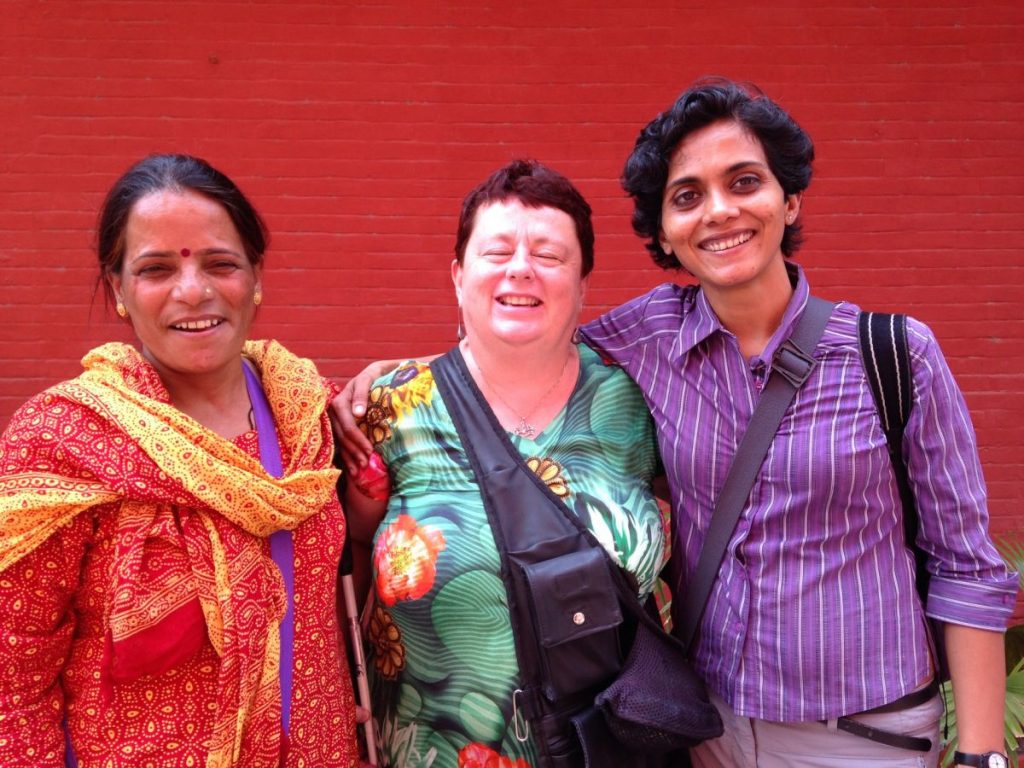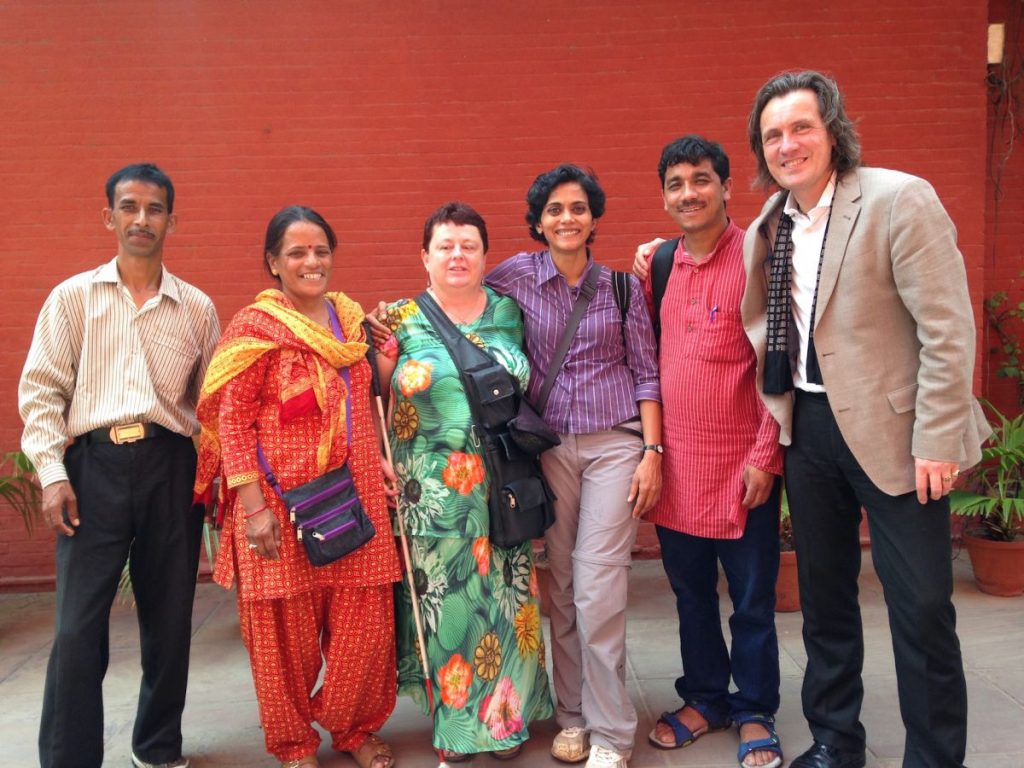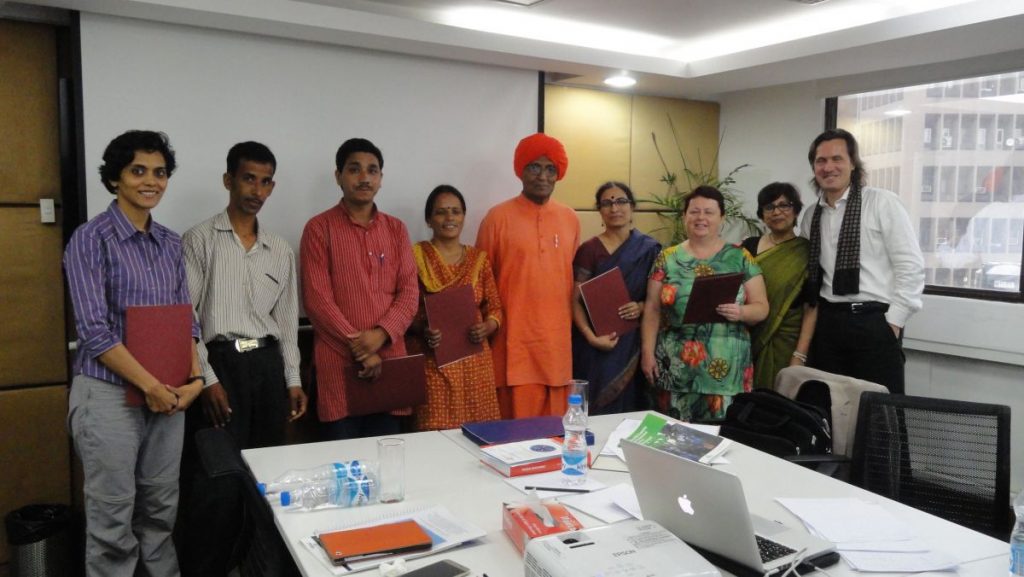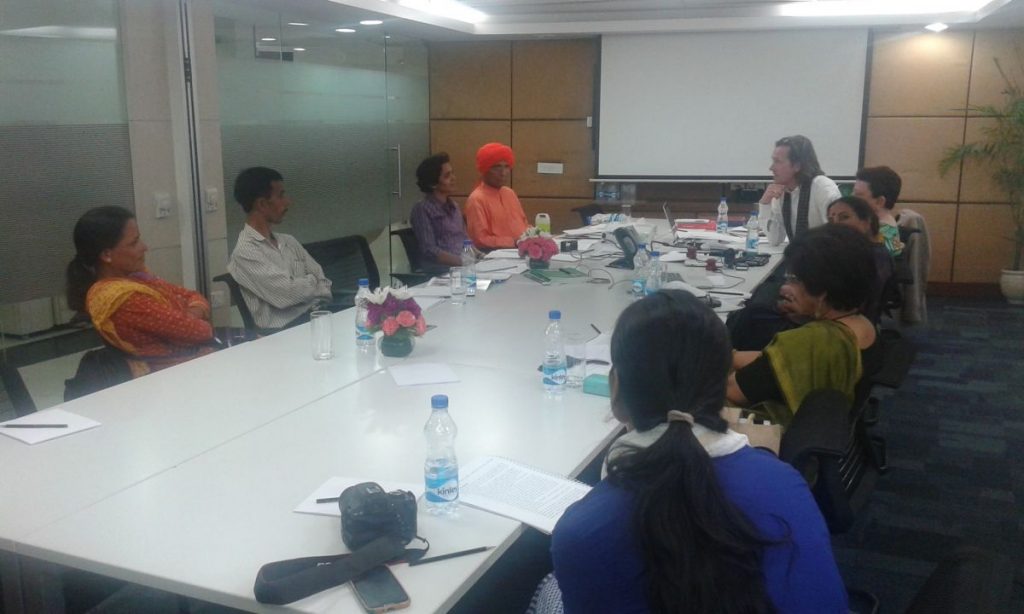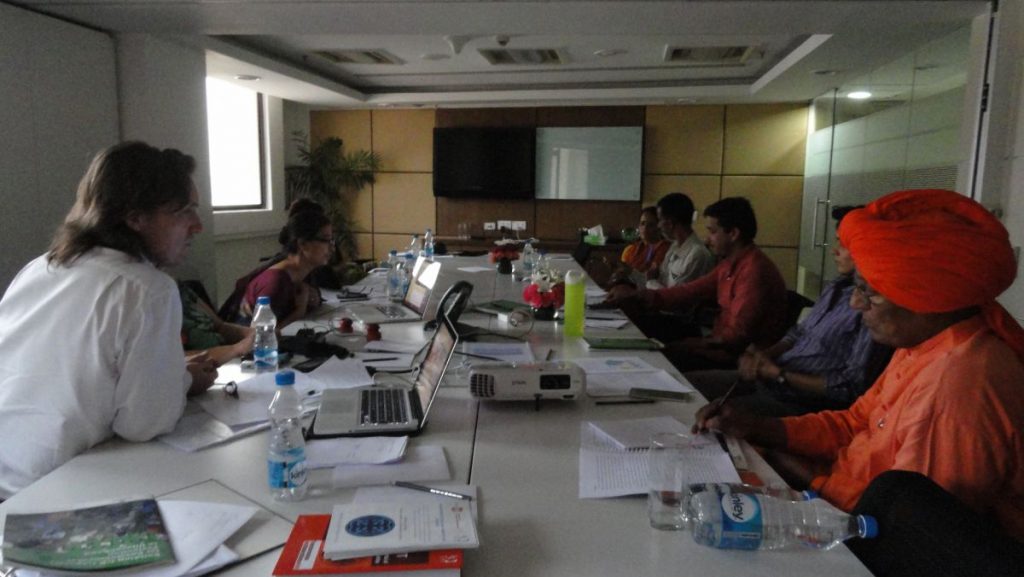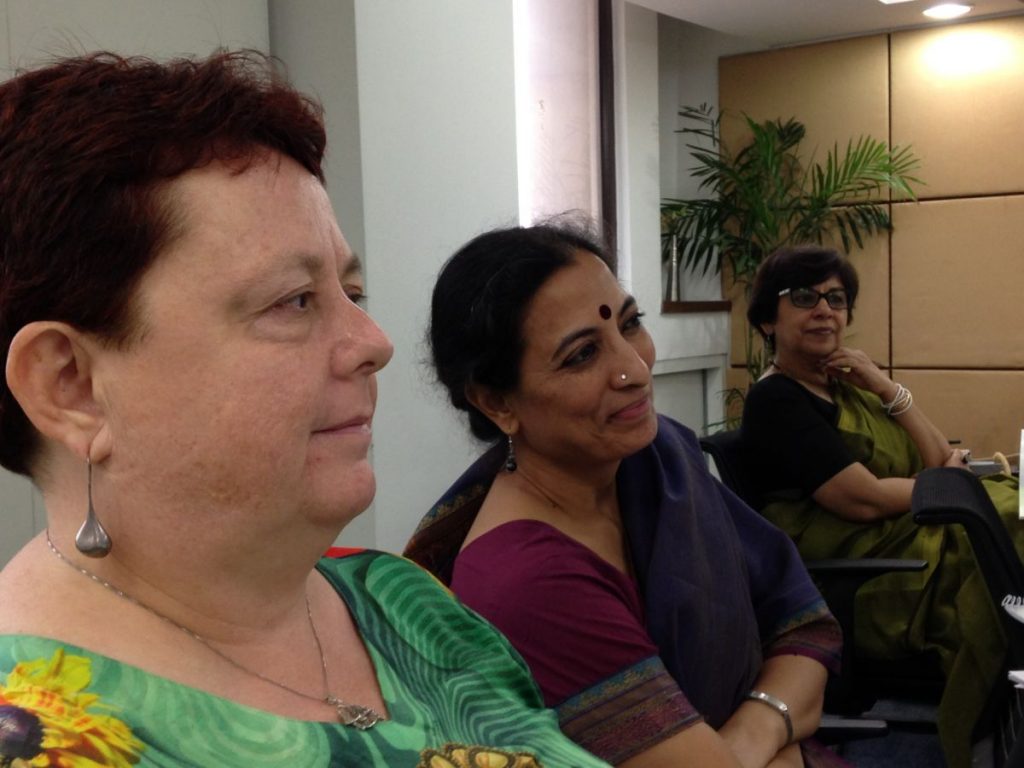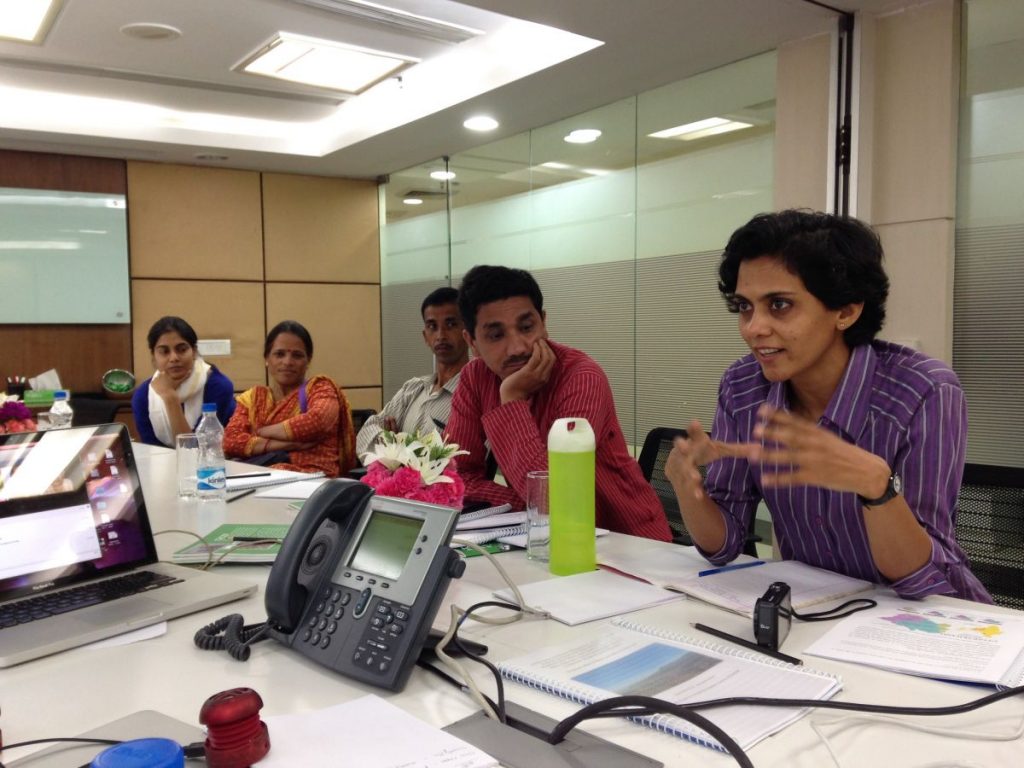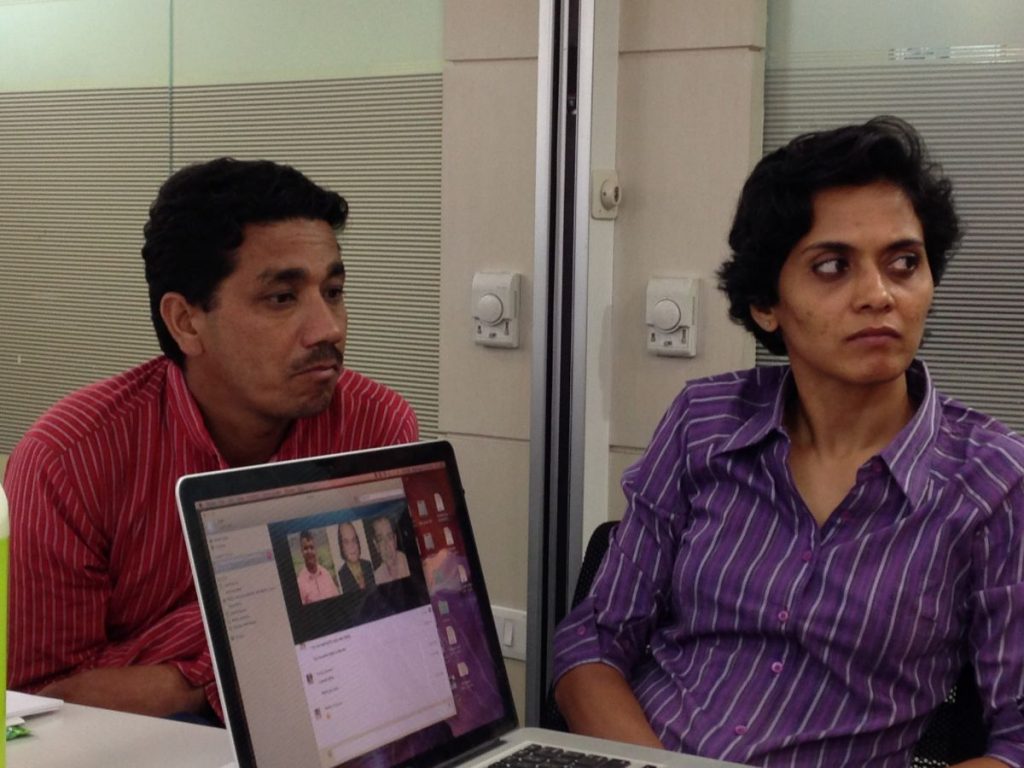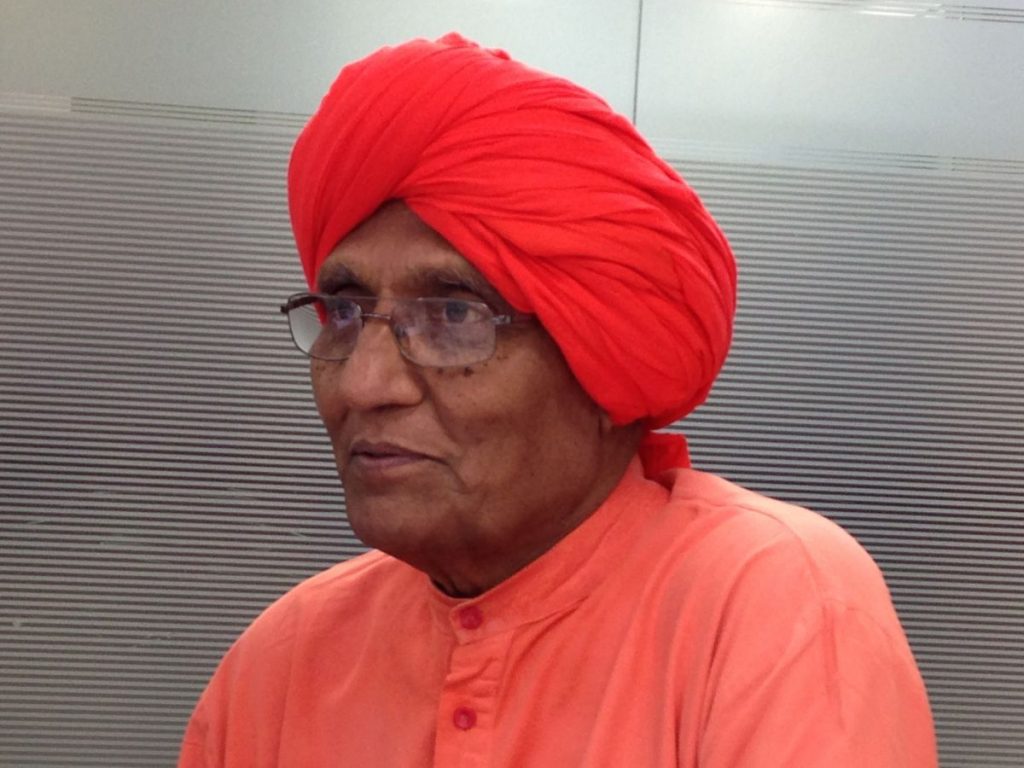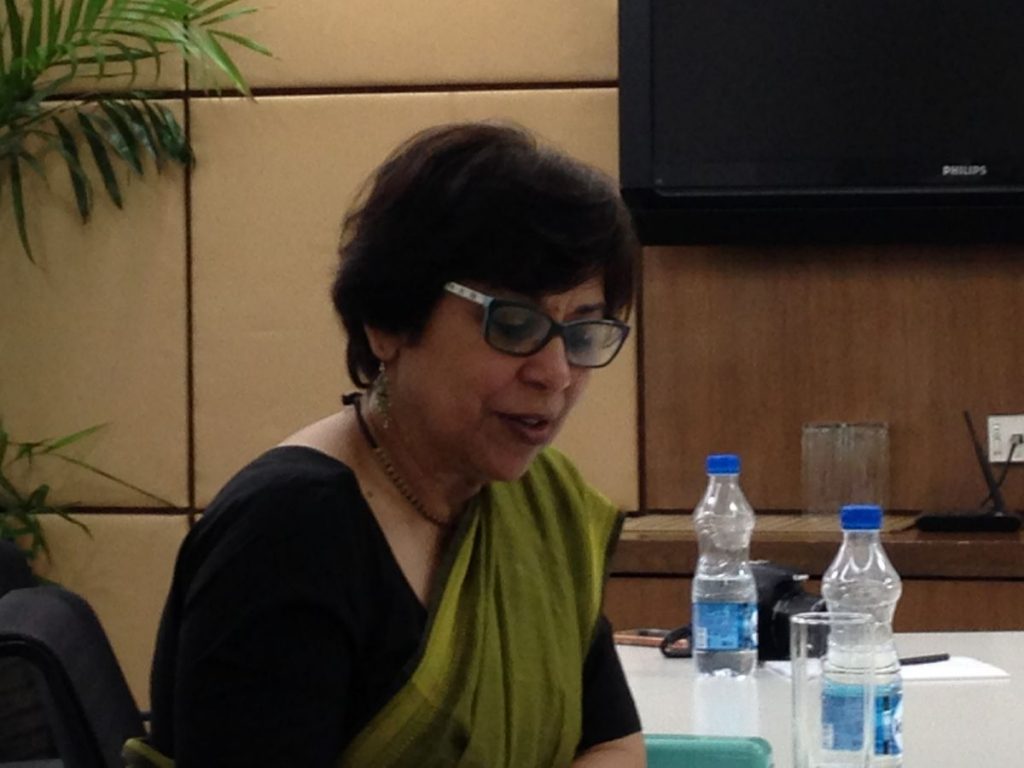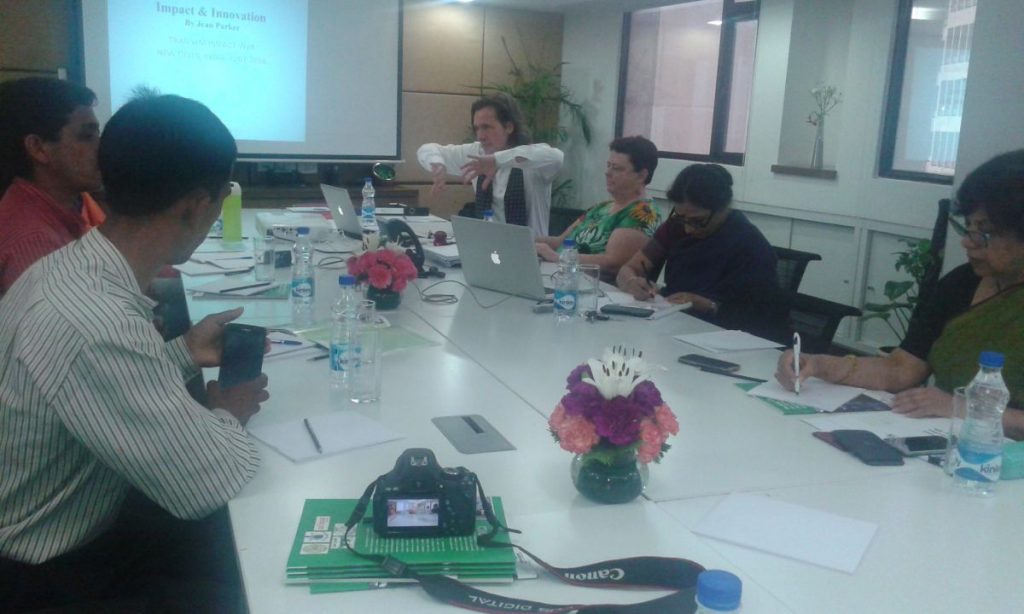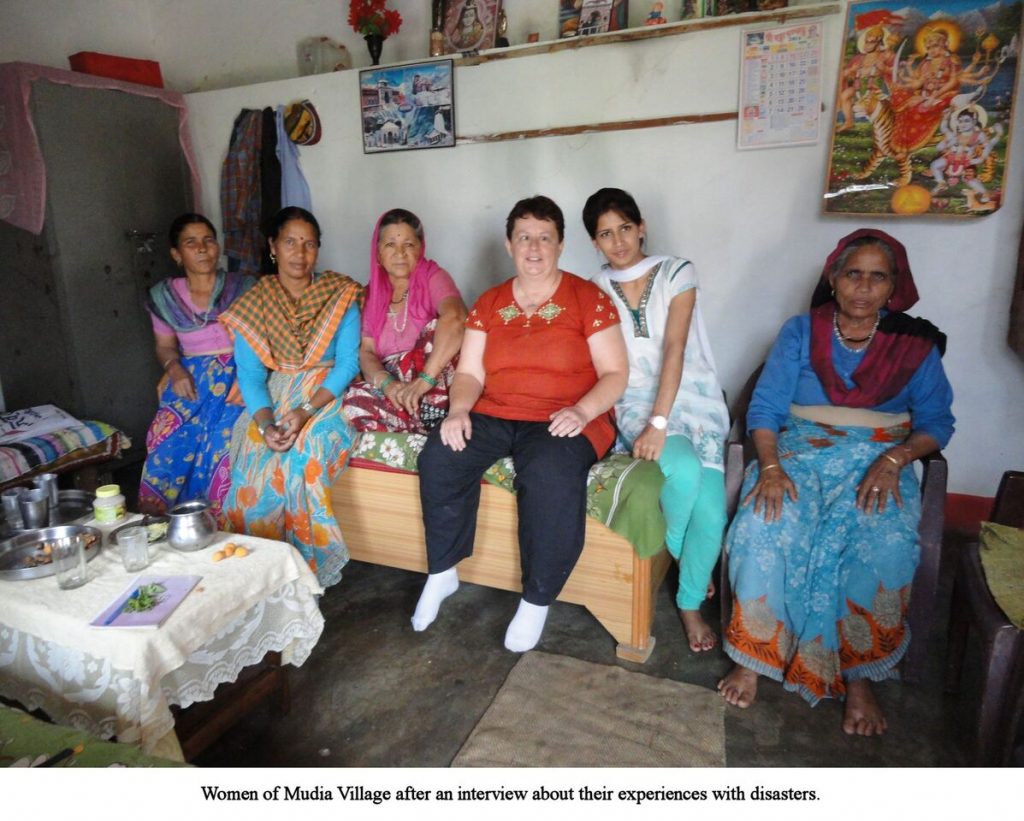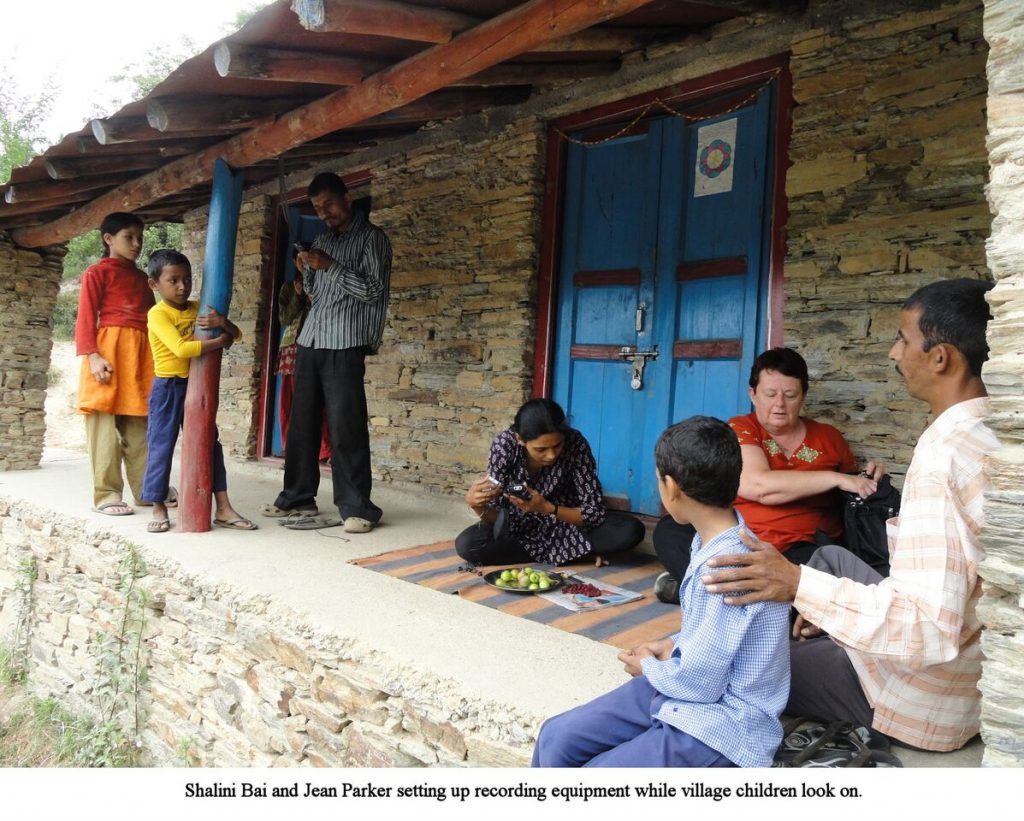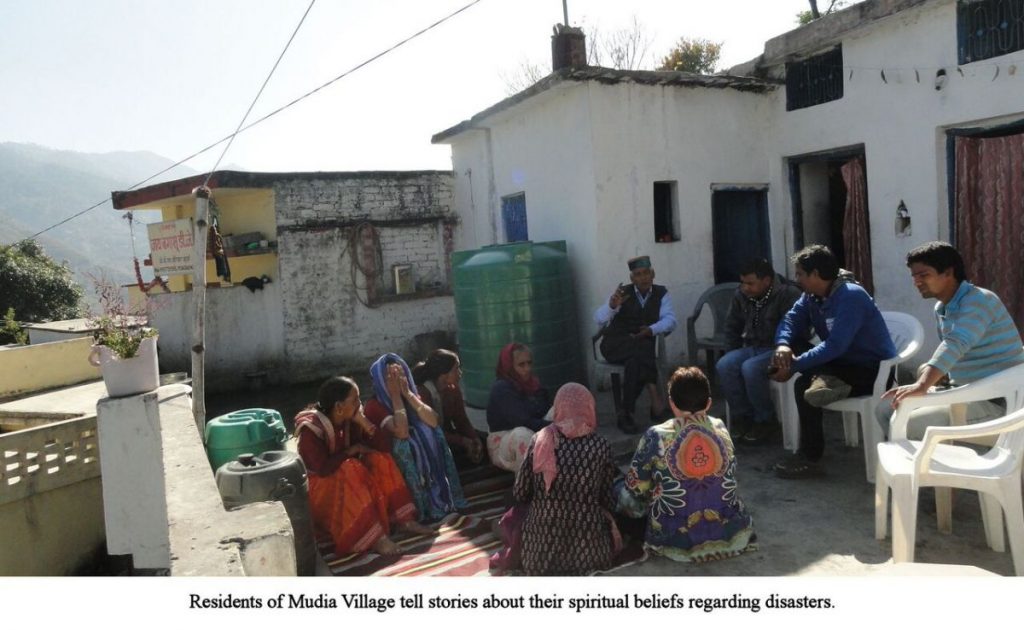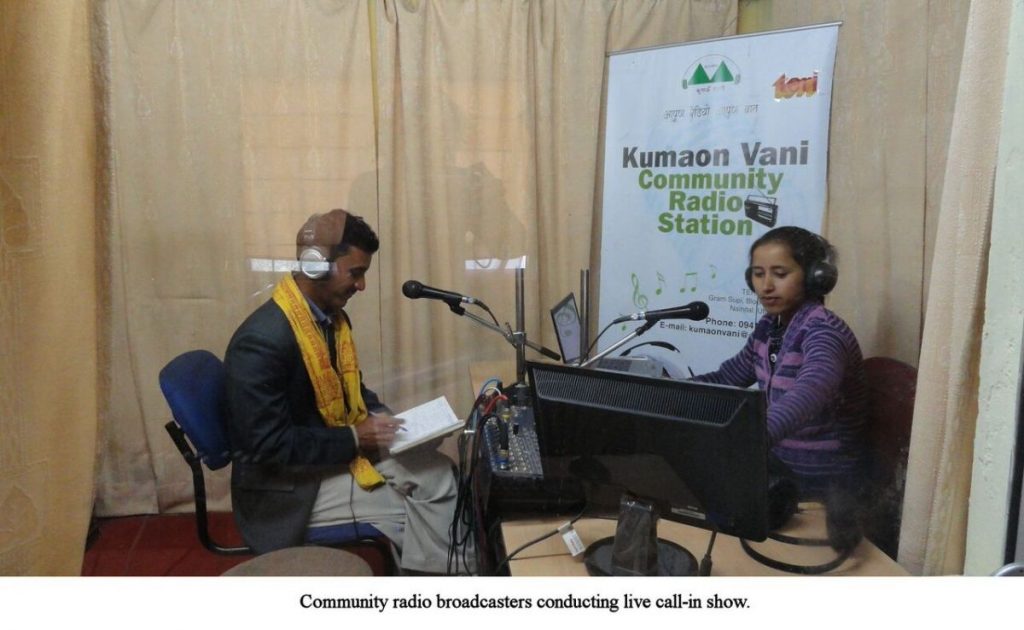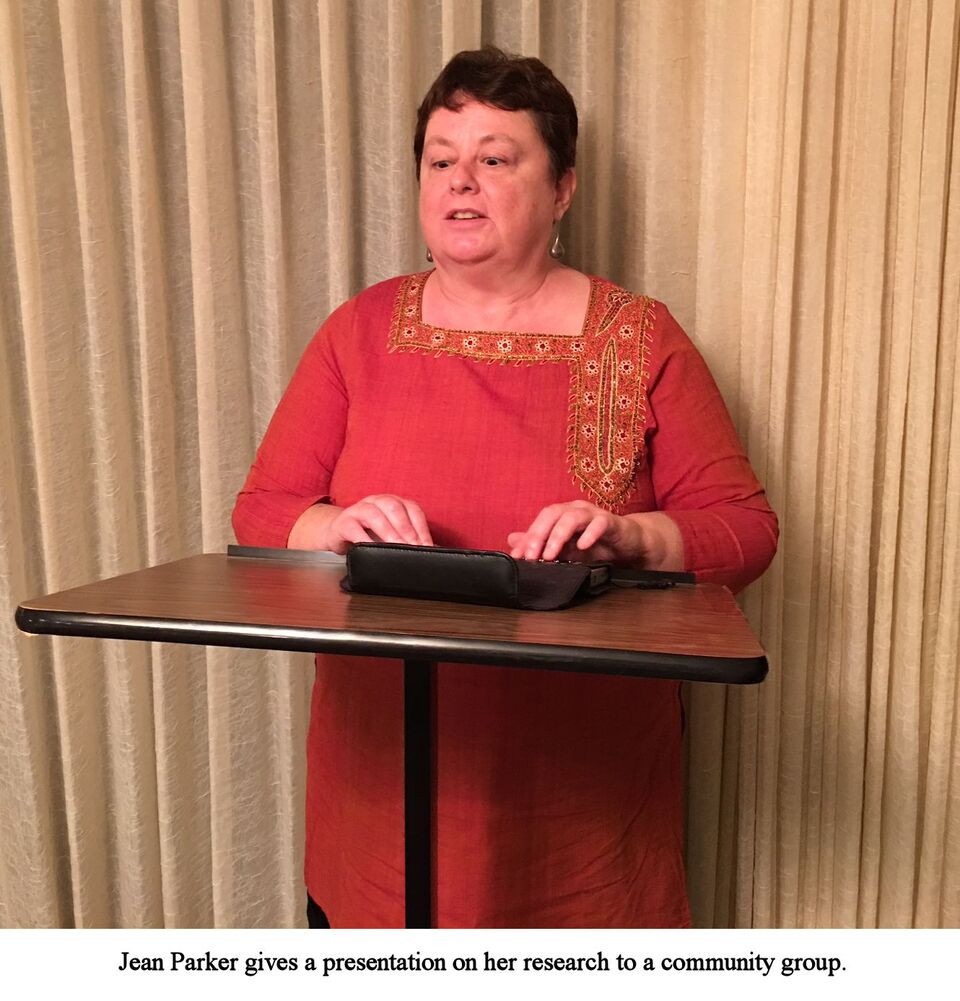Initiated by Jean Parker, this integral innovation, utilising community radio stations as communication tools for learning about emergency preparedness in the North Indian state of Uttarakhand, has resulted in a focused ecosystem of community radio practitioners, trainers and academics working to create effective practices which can be replicated in participatory media and emergency preparedness education.
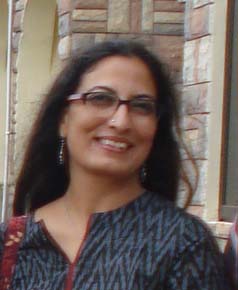
Venu Arora
Executive Director, Ideosync Media Combine, Faridabad, India
"Through her PhD thesis, Jean Parker has studied the impact of our work with community radio stations in Uttarakhand. Her focus on our research driven approach to creation of local community centred content on disaster prevention mitigation and our long term design for environment protection through community engagement is significant as it will assist us in highlighting the value of our partnerships with Community Radio as well as the role that community radios can play pre and during disasters and not just post disasters. The academic rigour that her work brings to ideas of collaborative efforts for social change further underline Ideosync Media Combine's own philosophy of collaborative peer based learning and horizontal pathways for knowledge creation. Further, by highlighting improvements we can make in the learning and collaboration online platform, Community Media Manch, her research informs our future work."
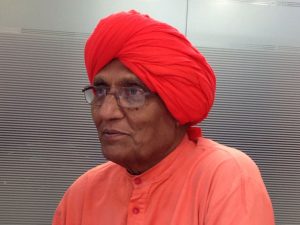
Swami Agnivesh
Founder, Bonded Labour Liberation Front; Recipient Right Livelihood Award (Alternative Nobel Price), India
"Dear Jean, the other day when I saw you in action, I felt challenged. Your indomitable courage to overcome personal physical problems and yet install hope in millions of others, your partnership with Alexander Schieffer and Trans4m, and with all of the great men and women of Radio Kumaon Vali, Radio Henvalvani, as well as Community Radio experts from India, Nepal and Bangladesh using community radio to empower the otherwise voiceless people is simply a blessing for all of us.
(written by Swami Agnivesh, days after he attended Jean Parker's Impact Forum in New Delhi during which this Integral Innovation was presented)"
Calling: Creating “Safer Communities” via Broadcast of Educational Programs
Jean Parker worked as a radio journalist and university lecturer in India for ten years. In 2004, she reported on the Indian Ocean tsunami, a disaster that killed an estimated 220 thousand people. Her career in broadcasting had started with community radio and she speculated about how the disaster relief would have been improved had community radio stations been operating in the disaster-effected area.
The research-to-innovation of Jean and her team has focused on how community radio stations and their listeners can create “safer communities” through educational programs broadcast on the stations to listeners in rural North India. The many impacts of this research include community-wide collective consciousness-raising about how people are influencing environmental degradation leading to an increase in the number and frequency of disasters and solutions that can be put in place to mitigate future emergencies. An increase in the unity among villagers and improvements in communication and accountability of government officials are also major impacting results.
Innovation Ecosystem: Ideosync & Radio Henvalvani & Radio Kumaon Vani & More
The eco-system for this research was comprised of Venu Arora, executive director of Ideosync, a community media training organisation in New Delhi, Ravi Gusane General Manager of Radio Henvalvani in Chamba, Uttarakhand, Rajendra Negi, Former General Manager of radio Henvalvani, Mohan Singh, General Manager of Radio Kumaon Vani near Supi Village in Uttarakhand, Shalini Bai, co-researcher and Jean Parker as lead researcher. The program directors of the two radio stations and community members of both listening areas entered the eco-system at various times throughout the period of the research.
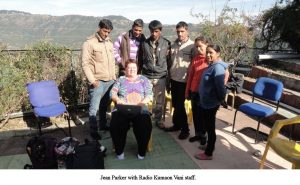
Integral Innovation: Combining Integral Worlds and Critical Theory => Towards Intecritical Theory
Two theoretical frameworks were utilised in first the problem exploration and then the building of solutions enacted by this research. The first was the Cultural Topography developed by Lessem and Schieffer which provided a way of understanding complex relationships within, between and among individuals and communities. The elements of core, bedrock, subsoil and topsoil provided an excellent metaphorical representation from which to understand the farming, rural nature of the research environment. The second theoretical approach was Integral Worlds Theory, also developed by Lessem and Schieffer. This theory analyses and describes both societal problems and their solutions through an interactive dynamic of south (relational) east (cultural expression), North (knowledge creation and West (science and technology.) Social harmony is reached when all of the Integral Worlds interact equally and form a fifth, center world of equitable global exchange and relationships.
Critical Theory, made famous by Brazilian scholar Paulo Freire in his work on literacy, was used as a framework to reveal the many imbalances of power and providing a tool for understanding the many social constructs contributing to these imbalances. John Heron’s Cooperative Inquiry Theory was used to engage community members in a process of collective and individual self discovery. This process allowed the research to approach a democratised, community-invested inquiry of depth and previously unstated meaning. To conduct the research, between 700 and 800 people were interviewed including staff and volunteers of the two community radio stations, local government officials, elected community leaders and ordinary citizens of the villages in the listening area about their experience with and beliefs about disasters. As the research continued, solutions were explored using the material and ideas broadcast on the program series. An impact study was also conducted to gauge the effectiveness of the radio programs and document what changes were enacted by community members as a result of hearing or participating in the broadcasts. The data from the interviews was transcribed and analysed to reveal both similarity and diversity of thought and belief across the interview spectrum.
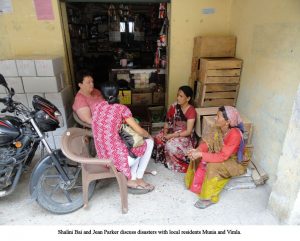
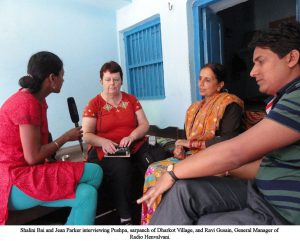
Integral Impact: Higher Levels of Collaboration between Villagers for Emergency Preparedness on the Ground and a locally-globally applicable Tool for Community Education
One of the most important contributions of this research is the development of Intecritical Action Research-To-Innovation Theory, abbreviated as Intecritical Theory. In the course of the field interviews, it was observed that many residents were connecting their experience of seasonal monsoon disruption to the overall phenomenon of global climate change for the first time. This introduced the idea that analyzing the situation of the Uttarakhand communities from a critical theory perspective only, limited the exploration to the local environment and missed the opportunity to position the experiences of residents in a globally connected context. The acknowledgement of this interconnectedness by residents was pivotal in the outcome of the research and the combining of Critical Theory together with Integral Worlds to form the foundation of Intecritical Theory.
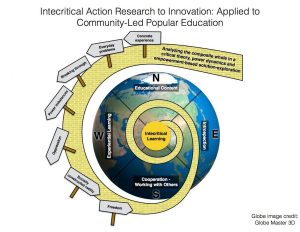
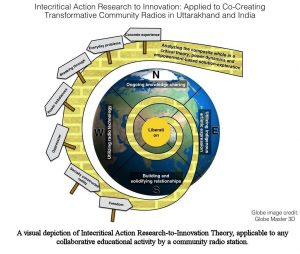
In the two illustrations shown here, Intecritical Theory is depicted in the context of the Uttarakhand research but is then expanded and applied to community education. It is the belief of the lead researcher that Intecritical Theory has the potential to provide an analytical and problem-solving framework for many types of community-oriented mobilisation including community-lead research. Doing so would enhance the abilities of communities to generate their own research data and decide for themselves how, or if, it should be used, and by whom. In keeping with the emphasis of the integral worlds on rebalancing societal forces, it is necessary to consider academic research as an area where democratisation would correct current imbalances in who collects social science data and how it is used.
This research-to-innovation has resulted in much needed documentation of the efforts of community radio stations in rural India to educate their listeners about emergency preparedness and environment protection. As a result, community members have unified around emergency prevention and cohesiveness within and among communities has increased.
The residents of Mudia Village near Radio Henvalvani said:
“We have heard the characters and as soon as the programs were completed on air and we found someone outside doing something the program said not to do we would say to that person that did you hear it on the radio, you should do this the right way, so we have been correcting each other and discussing it, people who have not heard are being educated about things through the people who have heard the programs.“
The credibility of the radio stations has also been lifted as the staff and volunteers have become more confident in their roles as researchers and communicators about complex, often technical issues.
Raki, who is the program director of Radio Henvalvani in Chamba, Uttarakhand says: “The challenge I faced has strengthened my confidence. I am a shy person… I had to collect data for the programs, this is given me confidence to create new programs for the listeners.“
Through the radio stations, residents are collaborating among themselves, with local NGO’s working in emergency preparedness and government departments charged with the various functions of emergency management. The stations together with their communities have created a process which can be replicated in other locations and the individuals involved in the research and program production are now in a position to share their experiences with others and provide training within the Indian community radio sector.
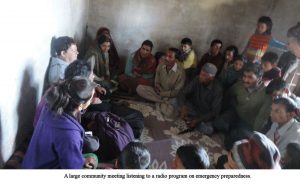
- Jean Parker: Viva Celebrations with Tara Singh and Vimla Singh from Radio Kumaon Vani, Rajendra Negi from Radio Henvalvani, and Shalini Bai, Translator and Co-Researcher
- Jean Parker with Co-Researcher Shalini Bai, after the VIVA
- After the successful PhD VIVA. Jean Parker with Vimla Singh from Radio
- Celebrations with Radio Kumaon Vani and Radio Henvalvani and Alexander Schieffer, New Delhi, June 2016
- After the Impact Forum: Trans4m's CARE-4--SOCIETY Award is handed over to Radio Henvalvani, Radio Kumaon Vani, Ideosync, Shalini Bai and Jean Parker - by Swami Agnivesh and Dr. Meera Seethi
- The Impact Forum was co-chaired by AMARC Asia-Pacific (Suman Basnet) and Trans4m (Alexander Schieffer)
- The Impact Forum was joined by Community Radio Representatives of the impacted communities, as well as Community Radio experts from India, Nepal and Bangladesh
- During the Impact Forum: Jean Parker, Venu Arora (Ideosync), Dr. Meera Seethi, IOM
- During the Impact Forum: Shalini Bai, Rajendra Negi, Tara Singh and Vimla Singh
- Via Skype: Participation from Mr. Suman Basnet, Regional Coordinator, AMARC Asia-Pacific, Katmandu, Nepal Mr. AHM Bazlur Rahman, CEO, BNNRC, Dhaka, Bangladesh Mr. Madhu Acharya, CEO, Sharecast Initiative Nepal, Kathmandu, Nepal
- Swami Agnivesh, together with Dr. Seethi, were the guests of honour and critical commentator at the Impact Forum
- Attending Jean Parker's Impact Forum: Dr. Meera Seethi, Special Envoy for India, IOM International Organisation for Migration
- Impact Forum: Impressions
- Jean with Women at Mudia Village, Uttarakhand
- Shalini Bai & Jean setting up recording equipment
- With Residents of Mudia who share spiritual beliefs about Disasters
- Radio Kumaon Vani conducting live call in show
- Jean Parker - presenting the research-to-innovation
